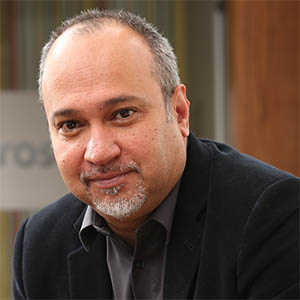According to the National Department of Basic Education there were more than 12-million learners in South African schools, both public and independent, in 2017.
 By Zoaib Hoosen, MD of Microsoft SA
By Zoaib Hoosen, MD of Microsoft SA
Most of these learners, 33 %, were in the Foundation Phase, meaning they are between ages of six and nine. These young people will make up the workforce of the future and with the rapid advance of new technologies, they are likely to face a complicated global market.
Recent research estimates that by 2030 half of the work being done by people around the world today will be automated by existing technology, and up to 375-million people may need to switch occupational categories between now and then.
Policy makers will need to take this into account and embrace advances like artificial intelligence, cloud computing and the intelligent edge to empower young learners and equip teachers with the tools, knowledge and skills to effectively shape their students’ young minds.
The future of education
Microsoft’s new report, “The class of 2030 and life ready learning: The technology imperative”, draws on multiple sources including surveys of 2000 students, an in-depth review of 150 existing pieces of research and interviews with 70 thought leaders, including educators, researchers, policy makers and technologists. It gives us greater insight into what an effective education system will look like in 2030 and unpacks the key role of technology in future education models.
One of the key insights from the report is the fact that personalised teaching, with greater student-centricity and a heightened focus on learners, will replace more traditional curriculum-based approaches.
Students who were surveyed said they want to develop the skills to navigate their own learning—to explore and make choices that unlock their curiosity and potential. They also want teachers who know and understand them as individuals to help guide them on their educational journey.
Teachers recognise that approaches where social-emotional skills are woven into the learning program are critical. However, many teachers simply do not have the time or the curriculum to personalise their teaching methods.
This is where technology can play a significant role. Advances in technology will allow teachers to spend less time on routine tasks and give them new ways to understand and interact with their students.
For example, collaboration platforms give learners new opportunities to interact and work together and provide teachers with new ways to engage their own professional communities, create customisable lesson plans, and provide real-time, personalised feedback to students.
Artificial intelligence (AI) gives teachers and schools new ways to understand how learners are progressing and allows for highly customised, timely, and targeted curation of content and, finally, mixed reality creates immersive learning experiences for learners that foster increased cognitive and social-emotional growth.
In the future, with the aid of technology, teachers will be able to scale and optimise personalised learning and drive a shift from traditional education models to a student-centred model that is customised to individual needs and has a greater emphasis on social-emotional skills.
We are already seeing how technology can impact on education and enable learners and teachers. Through the Microsoft Showcase Schools programme, we are partnering with schools to implement transformative programmes in the classroom.
To become a Microsoft Showcase School, the school must demonstrate thought leadership in at least one area of educational transformation and innovative use of technology, using Microsoft solutions to drive positive impact and student success with 21st century skills.
The significance of 2030 in South Africa:
The year 2030 is significant for South Africa as it coincides with the culmination of the National Development Plan (NDP) as well as the United Nations Development Goals. Chapter 9 of the NDP outlines educational objectives that must be achieved by 2030 if South Africa is to succeed as a nation.
It states that it is essential that everyone has access to education at a high standard, regardless of who they are and where they live.
According to the National Education Collaboration Trust the NDP’s vision for education and training is to ensure that all children have the benefit of a high-quality education, especially with regards to languages, maths and science – with the aim of ensuring that 90% of learners pass these subjects with at least 50% by 2030.
Learners who started their schooling this year will graduate in 2030. Increasing their future employability is especially important in a country where unemployment is already high, and the youth make up the bulk of the unemployed.
In 2030, graduates will need to be more versatile. They will need to be empowered by technology and demonstrate the social and emotional skills to excel in a new world. The use of technology in the classroom will be crucial for this, as it will not only arm them with the necessary skills but also give teachers the time and space to personalise lessons and concentrate on teaching learners much needed social skills.
Advances in technology present many opportunities for the future – especially within education where it can be used not only to bridge socio-economic gaps, but also to empower teachers and learners alike, especially if it is tailored to their needs.
